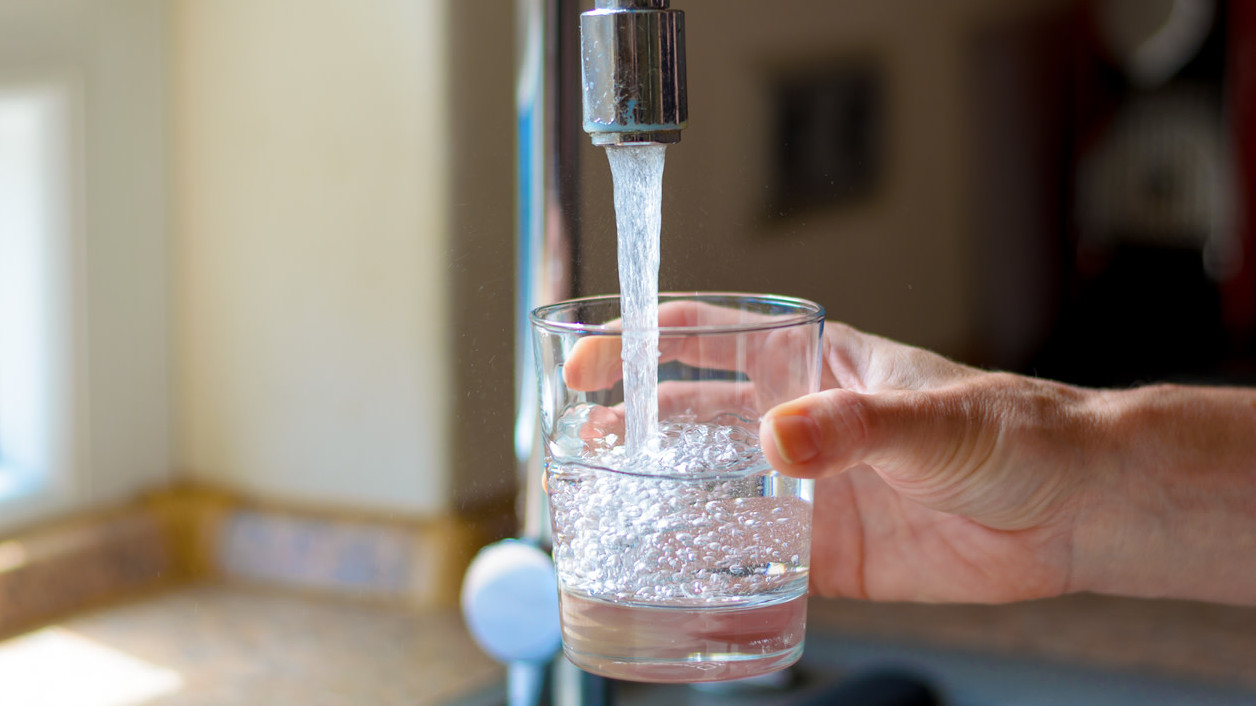Gizmo Can Reproduce NYC Tap Water For People Who Don't Understand How Pizza Works
For the past year, a company called New York WaterMaker has been selling a specialized water filtration system to pizzerias, bagel stores, and bakeries across America, claiming that it can replicate the chemistry of the Big Apple's H2O. Even though it's been repeatedly scientifically disproven that New York City's tap water is what makes their pizza and bagels so good, entrepreneurs, hucksters, and the pizza-loving public alike cannot seem to let go of this old wive's tale. Now, the company—which leases its equipment to businesses for $400 month—is setting its sights on the supermarket world, announcing that one of their systems has been installed in a Whole Foods test kitchen in Maryland, per Forbes.
While it's true that all water has unique chemical properties, its role in creating the distinctive flavors and textures in New York City's myriad of doughs is negligible at best. In an article on the company's filtration system written by Crain's, food scientists and famous bakers confirmed this fact, pointing to the multiple other factors that have a more tangible effect on a dough's chemistry: the type of flour, the yeast, the oven temperature, the process, the recipe—essentially, everything except the water. As a 4th generation Brooklyner with well over a decade of professional cooking experience, I personally say that the key to the city's distinctive bagels and pizza crust is the slow rising process that all my favorite joints use: All the dough is made at least 24 hours in advance and refrigerated, allowing the yeast to work its magic at a more leisurely pace. Lack of access to high quality H2O is a common excuse among inferior pizza and bagel makers, who can use explain away any sort of poor product quality by using geography as a scapegoat.
I know my word alone is still a bitter pill to swallow for most of you pizza party people out there. That's why I reached out to Kenji Lopez-Alt—James Beard award winner, bestselling author of The Food Lab, chief culinary consultant at Serious Eats, New York Times columnist, and America's food-science sweetheart. Take it from him:
The idea of "New York water" being something magical is odd. First of all, there's no such thing as "New York water." New York gets its water from a number of suppliers and those have not been consistent over the years either. That magical water your neighborhood pizzeria was using in the 80s is likely not much like the water being used today, in terms of exact breakdown of total dissolved solids (TDS, the main way in which waters differ).
Moreover, blind tests have shown that the water itself makes little to no difference in how pizza dough performs. What tiny differences it could potentially make are dwarfed by all the other variables that go into a pizza. If your pizza's not good enough, don't blame the water.
Essentially, what Kenji is saying is that I was right, and therefore it's fine for me to call shenanigans on this entire gizmo. In the meantime, while Whole Foods confirmed the installation of the New York WaterMaker, they say it's too early for them to comment on it. I'll continue keeping an eye on this developing story, with my eyebrow firmly raised.
